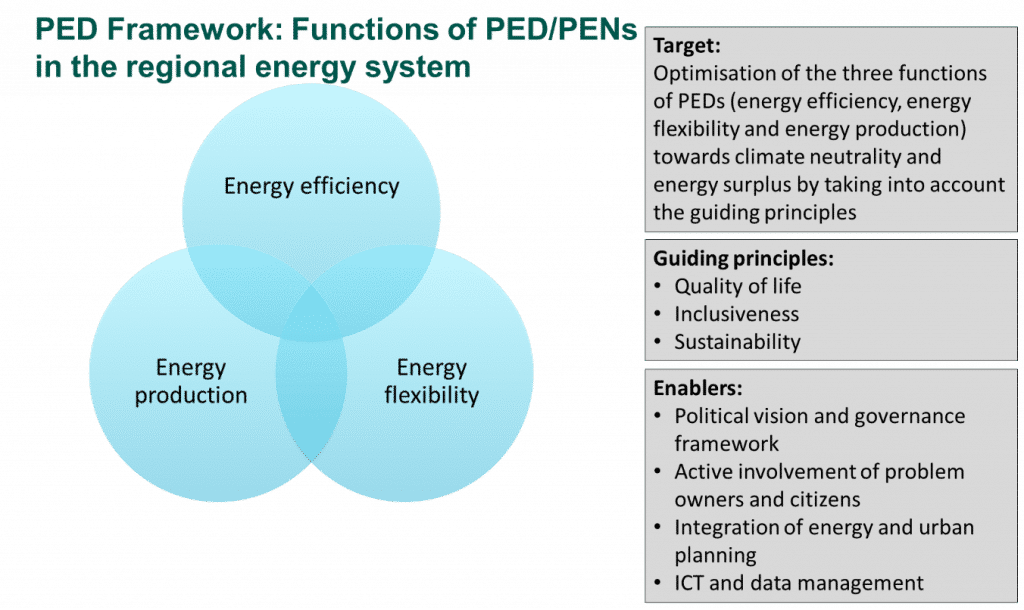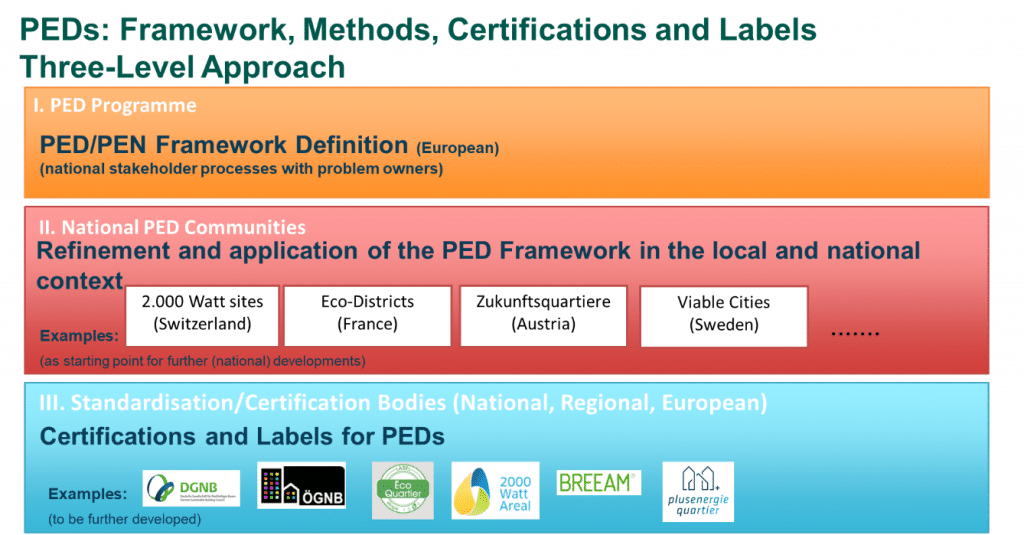Join JPI UE
Faq
FAQ
Please click here for the frequently asked questions we collected.
If you have an additional questions you are welcome to mail us at info@jpi-urbaneurope.eu
With this consultation of 4 questions we ask for your input and feedback on the PED framework. The consultation starts below the figures.
The framework has been developed with the aim of scoping ambition, goals and cornerstones for the development of PEDs, following a holistic approach to urban development and that is feasible for cities as the primary problem-owners and proposes the following definition for PEDs:
“Positive Energy Districts are energy-efficient and energy-flexible urban areas which produce net zero greenhouse gas emissions and actively manage an annual local or regional surplus production of renewable energy. They require integration of different systems and infrastructures and interaction between buildings, the users and the regional energy, mobility and ICT systems, while optimising the liveability of the urban environment in line with social, economic and environmental sustainability.”

Functions of PED/PENs in the regional energy system

Three-level approach towards the application of the PED Framework
Read the Framework Definition for Positive Energy Districts and Neighbourhoods here.